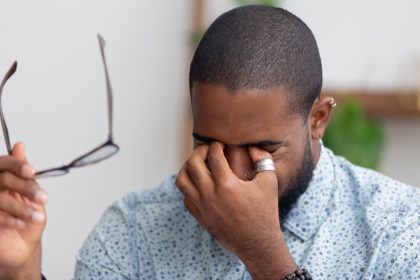Gambling can hold a certain allure. The excitement of the win, the thrill of the risk, the temporary escape from daily worries — it’s no wonder people are drawn to it. However, for some, gambling can become a serious problem, evolving into a compulsive gambling disorder. This mental health condition is characterized by an uncontrollable urge to gamble despite negative consequences.
Identifying the early signs of a gambling problem is critical for intervention and preventing further harm. Here, we’ll delve into some red flags that might indicate a developing issue with gambling.
Losing control of your finances
Finances are often the first area impacted by a gambling problem. Here are some signs to watch out for:
- Spending beyond your means: Bills pile up, savings accounts dwindle and borrowing becomes a necessity to fuel gambling habits. This can lead to a dangerous cycle of debt and financial instability.
- Financial secrecy and manipulation: To conceal the extent of their gambling, individuals might resort to hiding financial statements, lying about spending or taking money without permission. This secrecy can damage trust within relationships and create a web of deceit.
- The “win it back” trap: The powerful urge to recoup losses can be a significant motivator for those struggling with gambling. They may keep placing bets in a desperate attempt to win back what they’ve lost, often leading to even greater financial hardship. This cycle can be relentless and leave individuals feeling trapped.
Obsessive thoughts and behaviors
When gambling addiction takes hold, it can start to dominate your thoughts and actions. Here are some signs that this might be happening:
- Constant preoccupation with gambling: Your mind becomes fixated on gambling — planning your next bet, replaying past wins and losses or constantly seeking opportunities to gamble. This preoccupation can interfere with your daily life and responsibilities.
- Restlessness without gambling: When unable to gamble, you might experience anxiety, irritability or boredom. This feeling of unease can be a powerful trigger, pushing you back towards gambling to find relief.
- Neglected responsibilities: Work, school, relationships and even personal hygiene can suffer as gambling takes precedence. Important tasks are neglected; deadlines are missed; and commitments fall by the wayside.
- Increased tolerance and risk-taking: The initial thrill of gambling may decrease over time. To achieve the same level of excitement, individuals might seek out riskier bets, gamble for longer periods or chase larger wins. This can lead to even greater financial and personal risks.
Impact on relationships and well-being
Gambling addiction can have a devastating ripple effect on your life. Here are some signs that your gambling habits might be affecting other areas:
- Strained relationships: Broken promises, neglected responsibilities and financial strain caused by gambling can lead to arguments and conflicts with family and friends. Trust erodes, and relationships become strained.
- Loss of interest in hobbies: Activities you once enjoyed may fall by the wayside as gambling takes center stage. The joy and fulfillment derived from hobbies fade as gambling consumes your time and energy.
- Legal or work problems: Gambling addiction can lead to legal trouble due to debt or illegal activities undertaken to fund gambling. Work performance can also suffer due to missed deadlines, decreased focus or job loss.
- Social isolation: Shame and guilt associated with gambling addiction can lead to social withdrawal and isolation from loved ones. Individuals may avoid social interaction fearing judgment or feeling unable to explain their behavior.
Seeking help is a sign of strength
If you recognize some of these warning signs in yourself or someone you care about, it’s important to remember that gambling addiction is a treatable condition. There’s no shame in seeking help. Here are some resources that can get you started on the road to recovery:
- National Problem Gambling Helpline: 1-800-522-4700
- National Council on Problem Gambling
- Gamblers Anonymous
Taking the first step toward recovery is a sign of strength and a desire for a better life. With professional support, self-care and a commitment to change, it’s possible to overcome gambling addiction and build a healthier, happier future. Remember, you are not alone. There is help available, and a brighter future awaits.
This story was created using AI technology.














